Here’s everything you need to know about biosecurity
Dr. Farah Abdool Khader, state veterinarian and Joseph Manamela, chief animal health technician explain more on biosecurity in our latest video from the experts.
Dr. Farah Abdool Khader, state veterinarian and Joseph Manamela, chief animal health technician explain more on biosecurity in our latest video from the experts.

By Lionesses of Africa Operations Dept
The South African Scientific Community have done it again. They have found the next variation of Covid19. Following the Greek Alphabet in naming each new variant, the WHO jumped a couple of letters and named it Omicron.
Let us make two things clear.
South Africa finds these variations not necessarily because they are South African variations, but because South Africa is one of the world’s leaders in the scientific community in investigating and hunting down these variations. In a sign of how far ahead the experts in South Africa are, according to the New York Times (here): “European nations did not find the variant until after South Africa alerted them to it, demonstrating the gaps in their own surveillance efforts.” Following the alert from our friends in South Africa and having released a guide on how to find this new variant for the West, Omicron has now been found all over Europe. In Scotland cases have even been found with seemingly no outside contact with anyone flying in from southern Africa, but was community driven, questioning the knee jerk assumption that this new variant is all due to South Africa.
We would argue that exactly because of their successes and because of their own selfless recognition that the sooner the world knows, the better we can together fight any new variation, the world’s response to immediately shut down the southern African tourist season by banning all flights (or at least making it very difficult to travel South) is very sad to say the least.
Secondly, while the West continues its vaccination path of ‘me first’ and ‘me only’, Covid will continue to mutate in parts of the world where there are little or no vaccinations. The world is so interconnected, it really is true that no one is safe until everyone is safe, yet the West is already well into its booster jabs, whilst so much of the poorer world is still waiting for its first! The German health minister put it plainly (here) when he said that by the end of this winter, everyone in Germany will either be vaccinated, have Covid or be dead…if that is true of Germany, why not Africa?
Within these dark days, with such a weight of bad news hanging over our daily lives – just how do we motivate our staff? With potentially yet another major wave on its way it is enough to make us all pull the duvet over our heads and stay in bed – if nothing else it confirms our worst fears that maybe we shall never see the light of day again, but continue under the dark clouds of Covid for decades to come.
Throughout all of this we must recognize first and foremost:
It is ok to be not ok!
The understanding of mental health issues has come on in leaps and bounds in recent years thankfully. However, we are not experts in this, so this article cannot give advice in this field, but clearly we have to be aware at all times both for ourselves and for our employees. Across the continent there are some truly incredible Lionesses doing great things in this space to assist us during these dark times so we encourage you to look to them for guidance in these matters. However on a personal level, please keep at the back of your minds to be kind. None of us know how the others are suffering or what is happening in their private lives. Kindness is something we can all practice with ease. Kindness is not allowing people to walk over you, because you still have responsibilities to your employees, suppliers, customers, shareholders, et al, but there will be occasions when you can still be kind and other occasions when simply being fair but firm is all we need.
But motivation within the workplace in itself, is something else and it seems (if the 2020 Gallup poll is anything to go by), that we are simply failing in that area as they found in the US that just 36 per cent of staff are engaged at work, while 14 per cent are actively disengaged (here). ‘Actively disengaged’ are those who have miserable work experiences and spread their unhappiness to their colleagues. Just how sad is that! 14% are in this bracket, they get up each day and go to a company and workplace they dread.
How can you change this or at least avoid the slippery slope that is demotivation within your staff at a time like this? Of course you can order your staff to be motivated, happy and positive – but guess how far that will get you!
Or you can hire an ‘inspirational speaker’ but as the FT says this often just creates a short term fix, a “sugar rush of motivation, but that will just evaporate on first contact with the office” (here). Although we would agree with the issue over many ‘inspirational speakers’ – you get what you remember and not all remember the powerful stuff, we are looking for motivation, not a warm and cuddly feeling, a day off work and free coffee! We need to change the thinking, change the mindset of employees so that over time they skip to work…not skip work.
It is this changing of thinking that is so important.
In the early 1900’s Alfred P. Sloane who took General Motors to the top from 1920-1950, suggested that we were doing management all wrong. He famously wrote that whilst we pay for the hands of employees, we forget that we get their heads for free.
What he wrote then still applies now – yes we do get their heads for free, but do we use them? It sadly appears not – 100 years later! Although data shows that a massive 90% of good ideas do not come from the C-Suite, we still run this age old model that solutions to problems or issues cascade down from above as a very interesting lecture by Professor Richard Jolly of the London Business School suggests (here).
He suggests that for the vast majority of business, their employees simply turn up, fix what they have to fix, turn what they have to turn, write what they have to write, get paid and go home. How do we change this? How do we make people really care about and become mentally invested in the company?
The issue lies with bringing your people inside the tent with you rather than having them thinking they are on the outside.
The big word over the past ten years and even more so during Covid has been ‘LISTEN’. But listening is no good if it is not safe for the employee to speak, they require a safe environment within which they can do this. It should be clearly stated that respect to others’ views are paramount in meetings – that does not mean that one has to agree with everyone just so that no feelings are hurt, simply that all ideas should be given a respectful answer. This means you have to look out for people getting defensive if there has been a point made against their department. Of course simply making a point does not make it true, we all see things through different eyes and hear through different ears, we all have different understandings, but they still have to be respected, listened to and answered.
Likewise – “Don’t come to me with a problem without a solution!” – What rot! And rot it is, because then people who see problems first – such as those on the front line, in the warehouse, delivery drivers, sales – all of whom see and deal with customers and suppliers daily or perhaps even the engineers deep in R&D, might think that what they see is not important, is being solved already from above, or that because they cannot see the solution, they had better just keep quiet…and this starts the rot in the company. Yet if they aired the issue, perhaps those who have the advantage of being apart from the particular issue, can actually see the wood from the trees and find a solution. As CEO would you not rather know there is a problem?
Jo Owen, the author of “Smart Work: The Ultimate Handbook for Remote and Hybrid Teams” recently wrote in the FT(here) asking the question: “How can we create the conditions where staff rediscover their intrinsic motivation?”
He suggests that such “Lasting motivation comes from finding inherent satisfaction in work, not from the promise of pay or promotion.”
He suggests that there are four key pillars:
Peer support – and this also leans of the issue of a safe space. If your peers do not respect nor care, then work must become intolerable.
Responsibility – the art of letting go and not micro-managing.
“Build mastery and growth” – this is not just formal training, indeed Jo suggests that such training is only 20%. What is important, if not essential is ‘informal learning on the job’. Here we are talking of ‘mastery’ and that can only come from responsibility, making mistakes within a safe space and through mentoring. It is not just the current job that this trains for, but also the next, and the next, so that all employees can see the potential they have within a company for personal and career growth.
Tell them Why! – Why we do the work we do. Why it matters. Why this creates real meaning and purpose. Allow them to become invested in the bigger picture.
There is no doubt that dealing with people is not easy (some make it look easy) and dealing with employees (all of whom are different, with a different sense of humour, different issues outside of work, different concerns, and different likes and hates) of course has its pressures. But by treating everyone fairly and remembering that we all would much rather come to work skipping than dragging our feet, we can work together to build something with purpose and meaning.
As Gallup found:
“People want purpose and meaning from their work. They want to be known for what makes them unique. This is what drives employee engagement.
And they want relationships, particularly with a manager who can coach them to the next level. This is who drives employee engagement.”
No one pretends that the last two years have been easy and most recognize sadly that we are not out of the woods yet. But by acknowledging this and working to include our employees, to lift them up, to give them in their work purpose and meaning, we can get through this together and will be better for it.
The Swahili words ‘‘Tuko Pamoja” and the Zulu ‘Ubuntu” say it best.
We are in this together, a shared sense of purpose or motivation.
I am because we are.
Although we are hopeful that the West will start to recognize this in its dealings with Africa , now is the time to truly show your employees.
Stay safe.
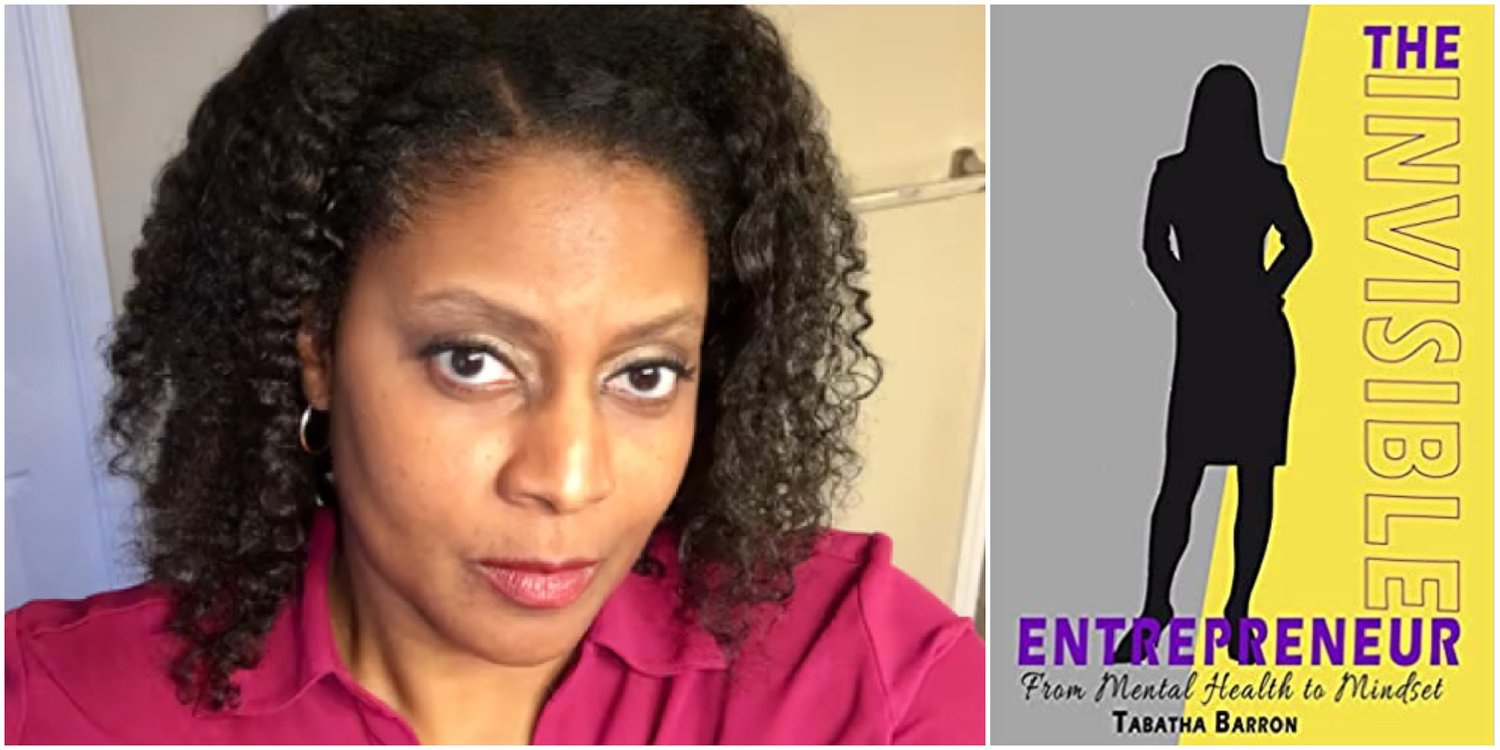
Book Review
The Invisible Entrepreneur is the type of book that believes there is a way for us, as women entrepreneurs, to not hear what we should do and how we should do it, but instead allows us to peek into the life of different people in different industries with similar experiences on their journeys, and see how we can be applied those learnings in our own lives and journeys. Each contributor outlined their experiences in their own words to support us on our entrepreneurial marathon. The level of courage and vulnerability shared here is a great way to help those who are encountering challenging people and situations and to understand you are not wrong, broken, or damaged. It is the opposite because you have the answer and those who are meant for you are the ones that will find you and also there is always more than one way to reach your goal. It can be difficult but you just need the right support, unshakable faith, fortitude of a champion, and the fierceness of a lioness and that is where your winning attitude will reside in you! These ladies have shown that Mental Health and Mindset are two things that are not up for compromise.
Being an invisible entrepreneur is not always what we think it is, and there is a way through it. Let us share with you how we are able to navigate the terrain of entrepreneurship and managing our individual mental health and mindset.
Entrepreneurship is fun and hard. Entrepreneurship is rewarding and frustrating. All of these realities can live within the same experience, and they are very good motivators to keep your mental health in mind as you travel on this journey.
Research has found that self-employed women are at a higher risk of mental illness due to gender obstacles and isolation.
Gender based barriers not only affected female entrepreneurs’ mental health but also added pressure to their work and impeded their success.
We hope to inspire, encourage and support other women through a few of our personal stories of struggle and triumph from mental health to mindset when you read this book.
Tabatha Barron is the founder of KYKS – Keeping Your Kids Safe and is a specialist in providing safety solutions to Superintendents & Elementary School Principals in the USA. She is a Child Advocate, a Risk Management expert, and the author of The Invisible Entrepreneur.
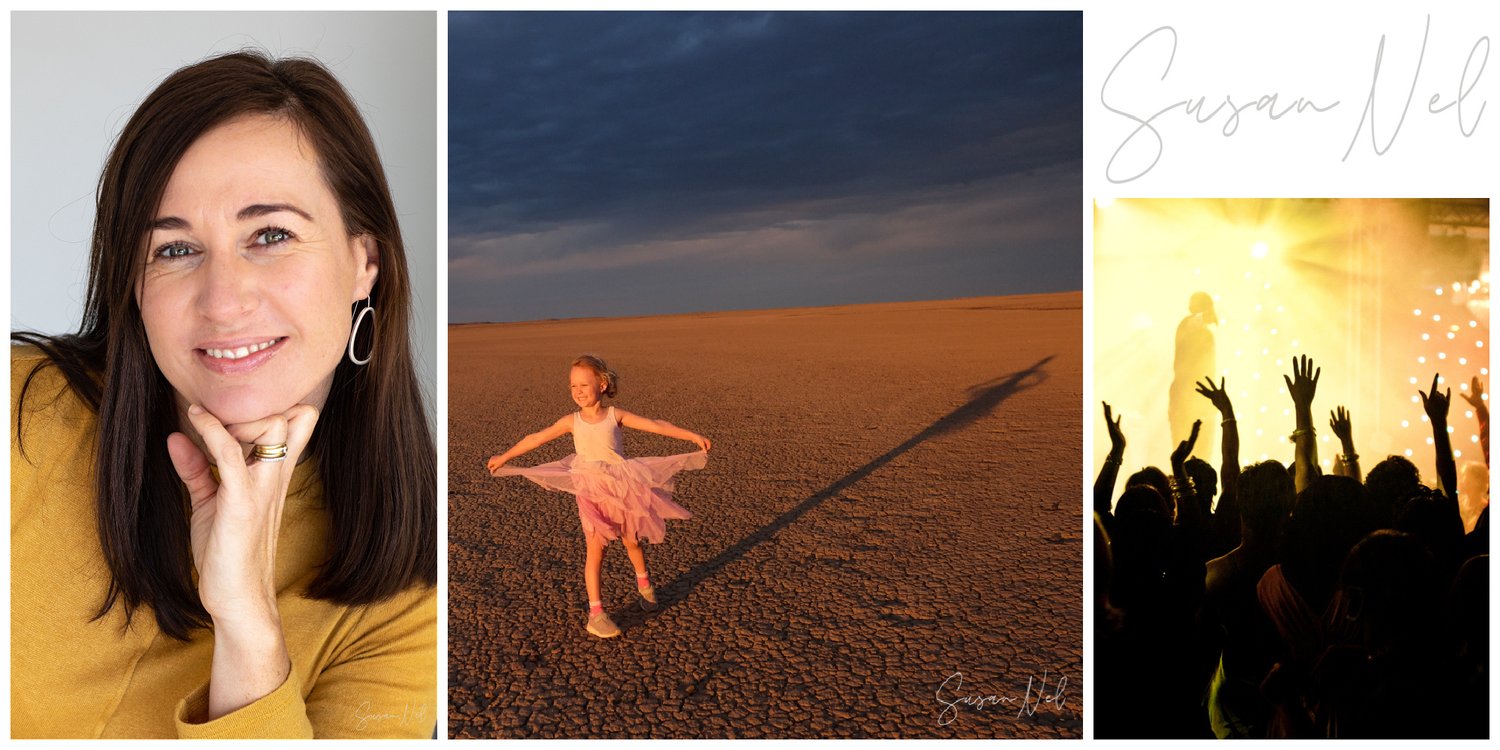
Why should anyone use your service or product?
I have over 12 years of extensive experience. I am able to anticipate and photograph moments and emotion at a high level of quality and I always challenge myself to do more and better each time I pick up my camera. Mostly, however, is my love, fascination and absolute ability to connect with people in front of my lens and otherwise. To climb into their shoes and really SEE them and understand what and how to capture the essence.
I am not afraid to share knowledge, to dig deeper and do go further to help others achieve their goals. Actually, I welcome photography / business chats. I love to teach others the skill of photography I so desperately wanted to learn when I was young and didn’t have the means to do so. I also love to learn from others, through their successes and mistakes.
Tell us a little about your team
It’s only me. I love the flexibility. When I am in need of an assistant, I hire one. When I need a designer, I team up with my friend at Kunshuis who started www.braveart.com.na with me. I always dream of having a PA, but financially I cannot afford someone yet.
Share a little about your entrepreneurial journey. And do you come from an entrepreneurial background?
My father is a farmer in the Northern Cape. My mother a teacher. So no, I did not grow up with any entrepreneurial background. However, I do believe that growing up on a farm taught me how to think out of the box. How to dream, but also how to be practical. A skill that came in very handy many times during my journey so far.
What are your future plans and aspirations for your company?
I have this dream to one day apply for and receive a photography Grant to photograph ALL NGOs in Namibia that is fighting the fight against poverty and inequality.
I had my first exhibition EVER in February 2020 in support of SPEScharity – a local NGO I have been photographing for the last 10 years. I am also a board member on their board.
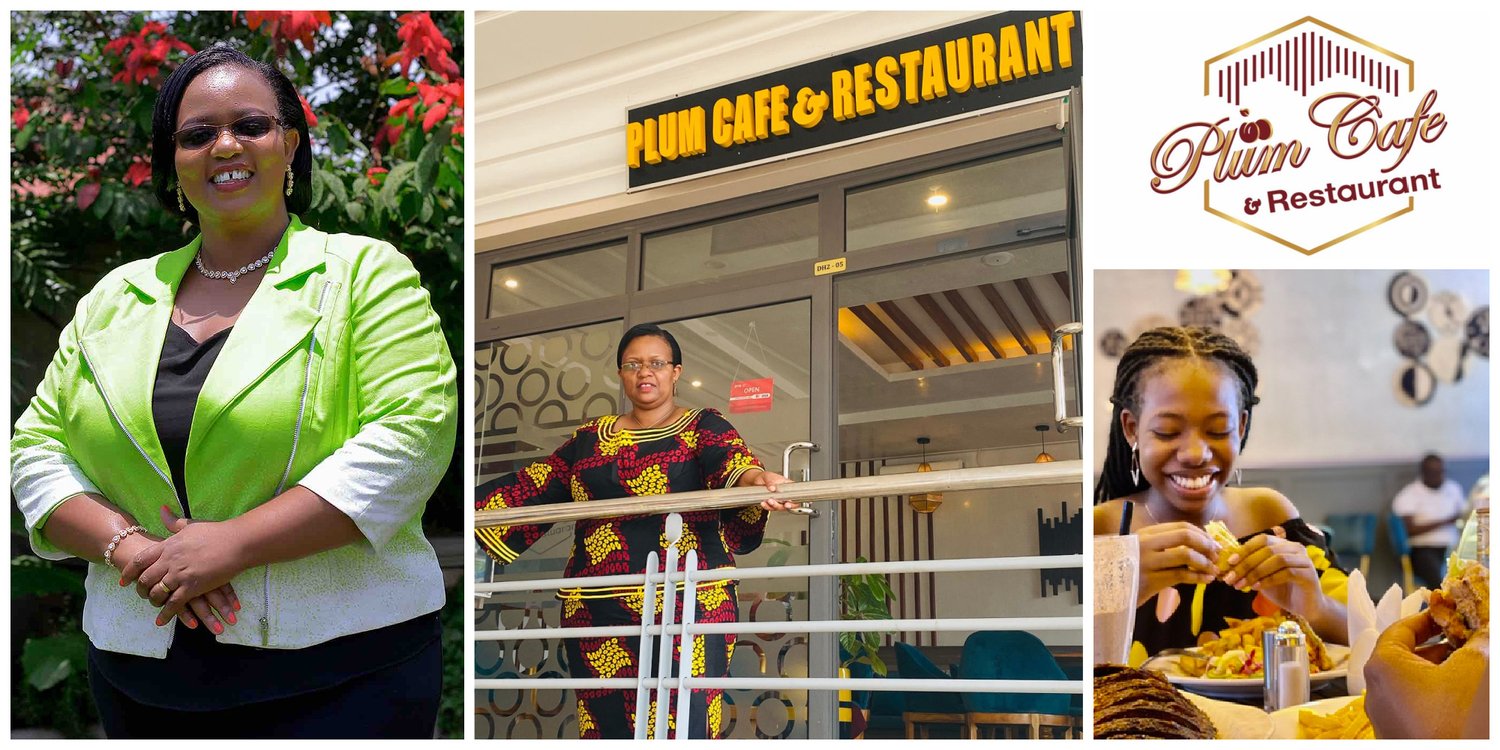
Why should anyone use your service or product?
Our products and services are high end, we treasure in producing and providing high quality products and services. Excellence is something that we strive for daily. There’s a notion in my country that us locals can never be able to provide high quality service or products. For me, this was and is my motivation to work hard and show our customers that we can provide the best as Ugandans.
Tell us a little about your team
I have a team of professionals, 5 chefs and 2 baristas with good experience in the industry and 2 visiting expert chefs that come in once a week to further mentor and coach the team on new trends in the industry, but also to ensure that everything is on track. We have other staff who do marketing, cashier work and service staff. Part of my team are service providers that I’ve walked with for many years, they help me with conceptualizing the idea, setting up the space and maintenance of the machines. They include the technician who services and repairs the machine, the electrician, the Interior designer and the guy who sets up the steel works in the kitchen. In fact, this team set up Plum Café and Restaurant in my absence because by the time of setting it up, I was sick, I had a back problem, and my movements were limited. I’d only get pictures sent to me by the team leader at the end of the day to show me how work is progressing.
Share a little about your entrepreneurial journey. And do you come from an entrepreneurial background?
I come from a family of entrepreneurs, both my Mum and Dad are. My Mum is a serial entrepreneur with grit and tenacity and most people who know her do not get surprised when they meet me on my entrepreneurial journey. I grew up counting money at the end of day when my Mum returned home, but I was very focused on my education, it wasn’t until much later that I started my first business. I remember the thought of starting a business came when I was doing my Bachelor’s degree. There were opportunities at the university, but I wasn’t sure if I’d be able to balance my course which was hard, Bachelor of Statistics, and running a business. So, I decided to concentrate on education first and promised myself that I’d start my first business after completing my master’s degree.
What are your future plans and aspirations for your company?
One of the challenges that we face in this industry is the inconsistency in the quality of ingredients on the market especially meats and vegetables. So, our future plan is to produce our own ingredients, to ensure consistency in the supply chain and the quality of our food ingredients. We plan to set up a farm where we shall be able to rear animals and grow most of the vegetables and spices.
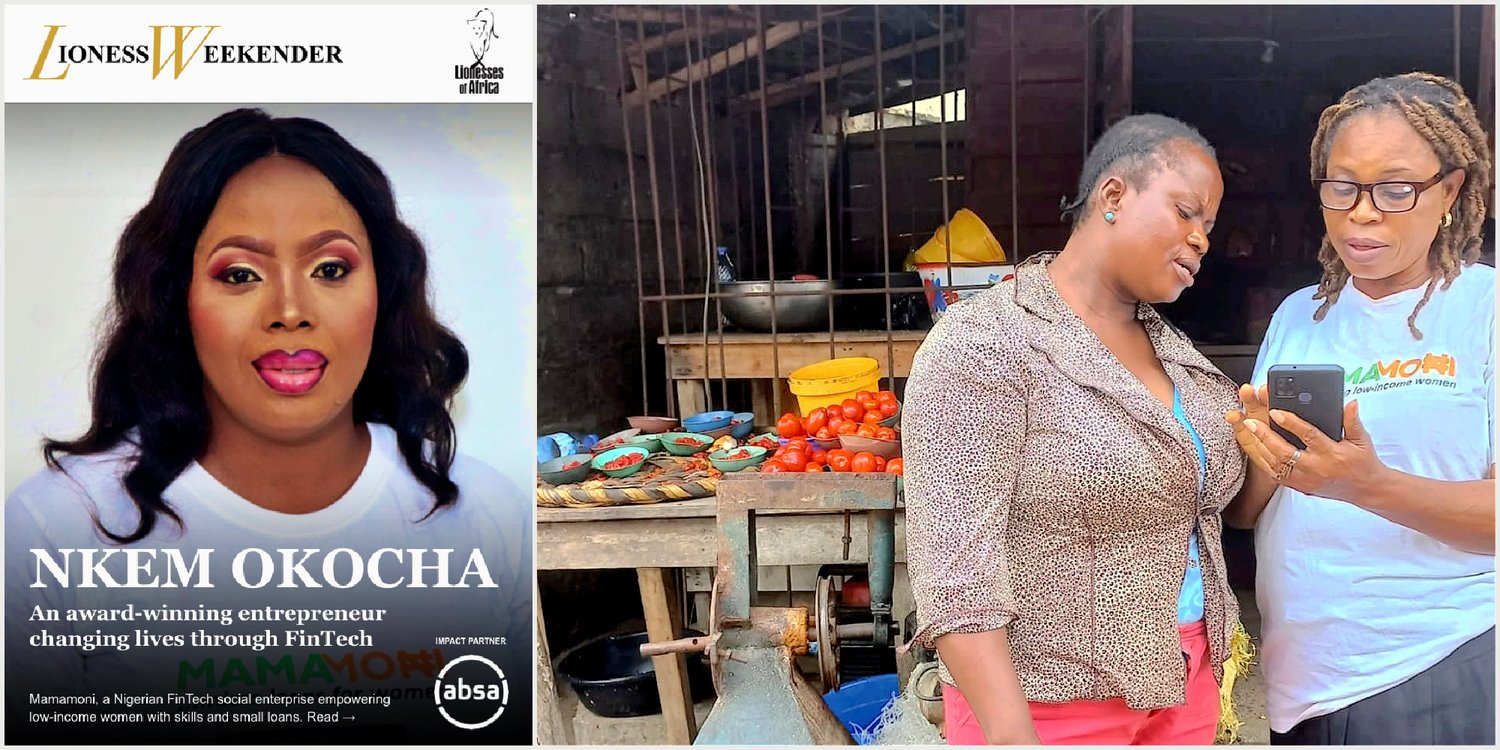
LoA spoke to the inspirational and impact-driven Nkem Okocha this month to learn more about what drives her to positively change the lives of low-income women in Nigeria.
What does your company do?
Micro Lending by MamaMoni www.mamamoni.com.ng aims to provide micro business loans to underserved women and low-income women in rural and urban areas in Nigeria. We cater to those women who ordinarily cannot be captured by the formal credit system. We offer them fast and simple loans that enable them to build, grow and sustain their businesses.
What inspired you to start your company?
I started Mamamoni due to the experience I had as a child – we lost our father, and my mother was a full-time housewife, with no livelihood skill and no finance to start a business. Feeding and education was a big challenge, and I had to hawk shampoo in major markets in Lagos Nigeria and later became a house help. Later in life, after resigning from my banking job after 8 years and started running my small business, I discovered we had a lot of idle women in my community and other communities I visited. I found that they had no livelihood skills and they had no money to start businesses, and as a result, they remained poor and unable to afford to feed or educate their children. In 2013, I started empowering women from different backgrounds on a range of vocational skills to help them start their own business and in 2014 we started the financial loans part of our business.
Why should anyone use your service or product?
We support our customers with digital skills, financial literacy, skill-based and business training through our Shesabi App (available on Play store) or offline training for those without smartphones to access the Shesabi App and website. ( www.shesabi.com)
Our App Micro lending by Mamamoni which is a Progressive Web Application (PWA) and Android App is the first lending app in Nigeria built for women only, also our PWA version enables low-income female entrepreneurs with low-end smart phones to access our loans.
Tell us a little about your team
As the founder, I lead the team of 10 at Mamamoni. Our team consists of individuals who are passionate about using innovation to uplift and empower low-income women in Africa, I have 8 years’ experience in the banking sector, 5 in the mobile money space, and 8 years working with low-income women in different communities. We have a board of advisors with over 40 years’ experience in the Tech and Financial Sectors.
Share a little about your entrepreneurial journey. And do you come from an entrepreneurial background?
I have 8 years banking experience in operations and marketing. I am so passionate about entrepreneurship, so while working in the corporate world, I had a business where I sold motivational, Christian, and inspirational books. I also had a book club where people used to come and rent novels for a fee. After resigning from my job, I knew I wanted to positively impact the lives of other women, due to my own personal experience and the level of poverty in my community – these factors led to the founding of Mamamoni.
What are your future plans and aspirations for your company?
Our main objective is to empower and provide access to finance for women who are not in an economic position to secure funding from traditional financial institutions because of certain barriers like collateral, transaction history, and also to drive innovation through leveraging mobile and web technology. With our newly launched lending application we hope to fund 1,000,000 low-income entrepreneurs in the next 5 years.
What gives you the most satisfaction being an entrepreneur?
I get satisfaction when I see the transformation in the lives of the women we have empowered. Due to our interventions and innovations, they now have skills to help them generate income to feed their family, educate their children, etc. Also, they now have easy access to capital to start, grow and scale their small businesses.
What’s the biggest piece of advice you can give to other women looking to start-up?
Start with what you have (skills, expertise, goodwill, social capital, etc.) and don’t wait until you have secured millions to start-up.
Let your venture not be for profit only, let it have social impact in your communities.
Be focused, persistent, disciplined, diligent and hard-working.
To learn more about Nkem and the story of Mamamoni, connect with her on LinkedIn https://www.linkedin.com/in/okochankem/ or via email: okocha.nkem@mamamoni.org
Also, follow Nkem and the work of Mamamoni on their website and social media platforms:
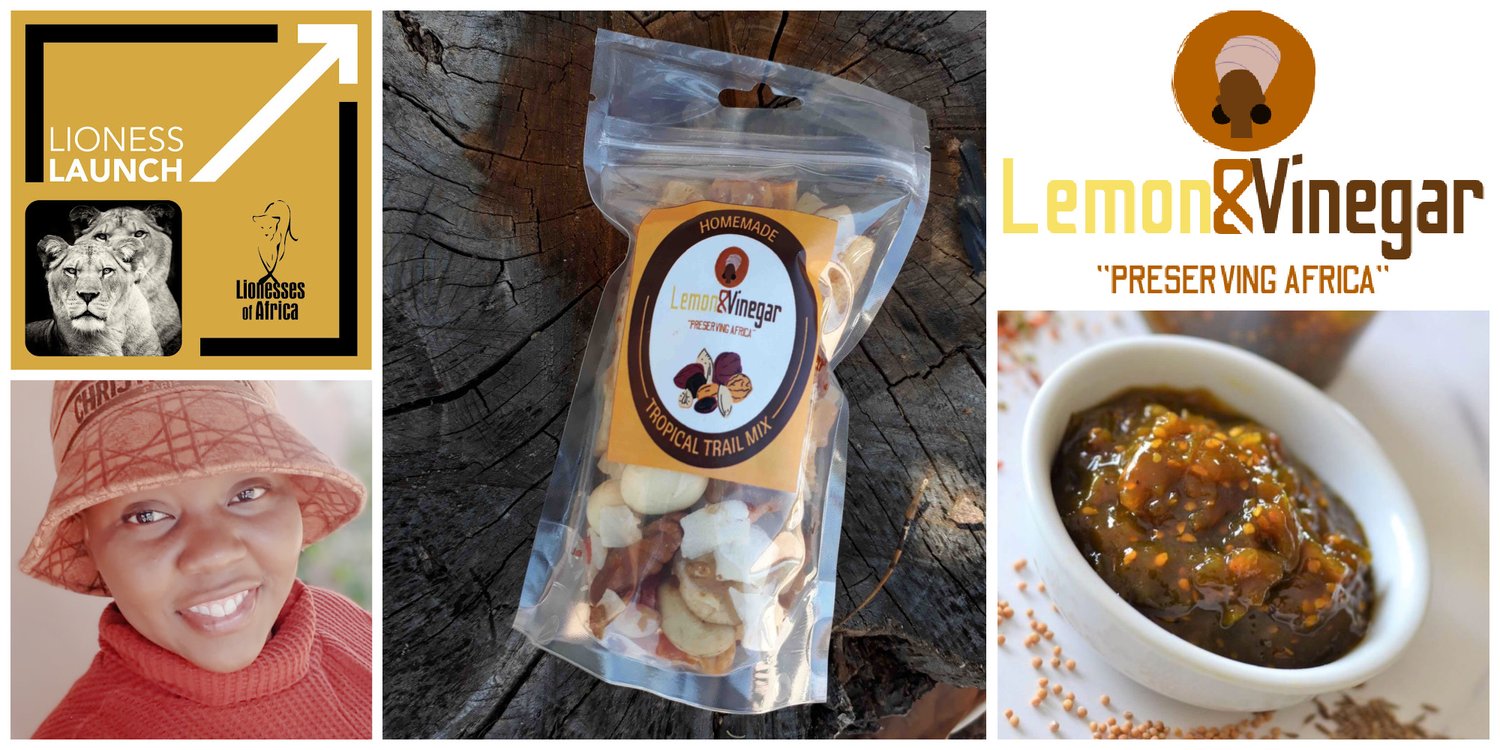
What makes the Lemon & Vinegar range of products different in the marketplace is that the company wants to make an impact through its food production and distribution. It engages in its daily business activities under the basic commitment of contributing to the sustainable empowerment of various industries in Africa and ensuring profitability of stakeholders. Ultimately, founder Thato Angelina Gabaitse, has aspirations for Lemon & Vinegar to be Africa’s premium food production and distribution company. The mission of the business is to produce and process the finest quality food products for the local and international markets through sustainable and eco-friendly methods.
The newly launched Green Tomato Chutney can be purchased through the Lemon & Vinegar website – http://lemonvinegar.co
To find out more about all the food products created by Lemon & Vinegar, send an email to agabaitse@gmail.com or check out the company via its social media platforms:
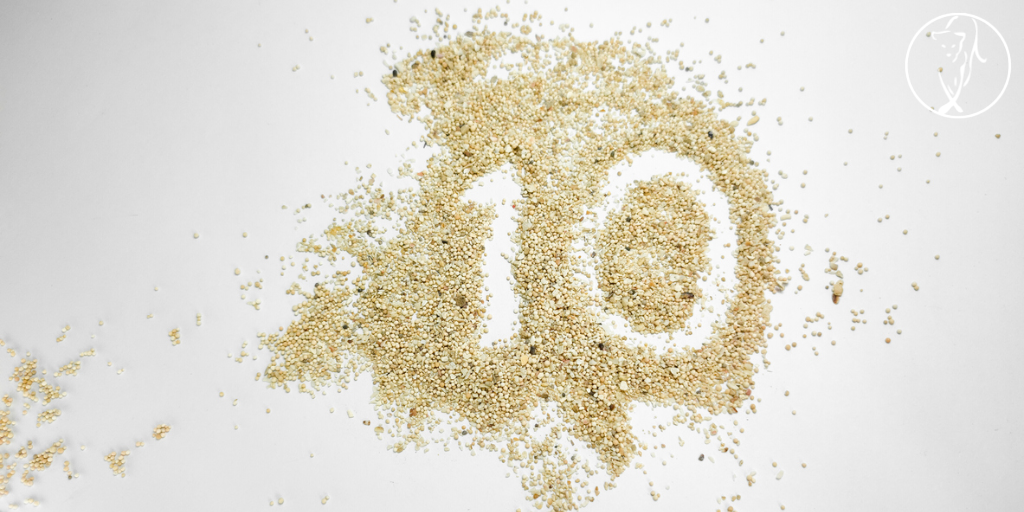
by Naike Moshi
So, without further ado, below is a look at the most important lessons that I have learned thus far.
Network , network and network – it took me more than a year and a half to get my first job. It was through the power of networking that I was able to land my first job at UNESCO.
Life is short and it’s here to be lived – Life is too short to spend being unhappy. If you have a job you hate, a boss who discredits you, or a career that isn’t taking you anywhere, do something about it today. You don’t want to wake up one day and regret not making a change when you could.
Building a personal brand and thought leadership – While I am still learning (and I don’t intend to stop), the biggest lesson I have learned so far is that personal branding is so important in your career this includes securing board member roles and other opportunities. Building a personal brand, takes time. Start now.
Choose working in a startup over a well-established organization – When I started my career, I received two job offers on the table, to either work in a start-up or large established international organization. Guess what, I chose to work in a large organization and ended not learning as much. I was growing horizontally. Working in small settings or startups, will provide you with more responsibilities. You will be instilled with the value of hard work, ownership, and self-sustainability.
Work hard – There is no elevator to success. And know that every successful person has also worked incredibly hard to get there. So do you your part and contribute to the growth and success of the organization. And yes, it’s up to you to make that company grow.
Find a paid mentor and a coach – Paid mentors are much better as they are totally committed to ensure you succeed and reach your potential. The difference between paid and voluntary mentors is access. Paid mentors work in blocks of time. Because you are paying them, they set up a structure to meet with you at specific and mutually agreed-upon time blocks. Since they are being compensated for their labor, they view your meetings as a priority and show up prepared to serve you.
Always stay relevant with your profession or career – The world is moving at a fast pace, if you decide that you are “done” learning, you will be left behind within a matter of years, if not sooner. Learn and apply. Don’t become ancient or irrelevant within your profession or career.
Diversify, learn, and apply – Hand in hand with learning, if you stick to only doing what you know, or what you are good at, you may quickly find that you’re only good at one thing. We need to be agile, nimble, and interested in many different things. Learn and apply your knowledge.
Embrace failures and mistakes – Failure is part of the journey to success. Most people have a hard time admitting that they have failed at anything. We should normalize failures. Be valuable and solution oriented, companies are always looking for problem solvers, leave a mark.
Be valuable and solution oriented – Companies are always looking for problem solvers, offer solutions and become valuable. Make sure you leave a mark.
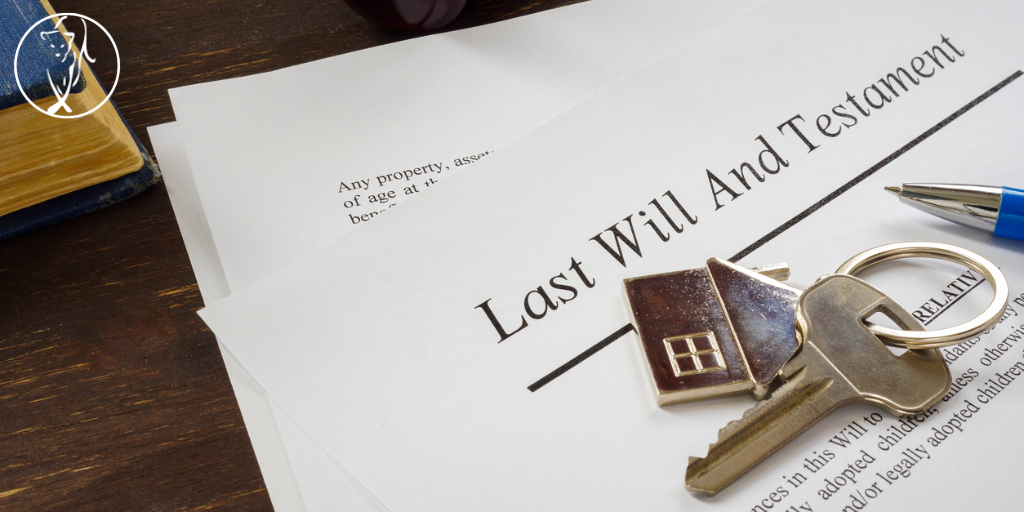
by Sinal Govender and Claire Keet
There are a handful of legal documents that all adults should have sorted out and safely stored away for “just in case”. These are your will, living will, durable power of attorney for healthcare and digital executorship document. Together, these four documents guide really hard decisions during the grizzliest parts of life – terminal sickness and death. (You may well want to crawl under a duvet and avoid doing this altogether. Thinking about sickness and death – especially your own – is not fun. But it’s a necessary evil and you’d be doing a brave thing by getting these documents sorted out).
Your will, living will, durable power of attorney for healthcare and digital executorship document serve two important functions. The first is making sure that your wishes are actually met if you get really sick or when you die. The second is making sure that your loved ones know what your wishes are and can fulfill them for you.
It’s not a nice thing to think about but, by the time these documents come into play, you’re not really part of the decision making process anymore. On that cheerful note, let’s dive in and explore what each of these documents is.
Your “last will and testament”, usually just called your will, is a legal document that says how, when and to whom your assets get dished out when you die. The assets you accumulate while you’re alive might include things like money, property, physical possessions, intellectual property, businesses. If you have minor kids, then your will is the legal document that says how and by whom they’ll get looked after if you die before they become adults. A simple fact about the modern lives we lead is that you might also be leaving behind some debt that needs to be sorted out too and your will can help direct how this needs to be done.
It’s really important that your will is exactly that – your will! (And not the will of an estranged, money snatching step-uncle, for example). That’s why it’s so important that when you sign your will, you have your faculties and that no one is forcing you to do anything you don’t want to do. You need to be sober and in a clear frame of mind when you are reading, amending, and executing your will. An important part of writing your will is making sure that it’s open to the least amount of “interpretation” possible. What we want to avoid is a situation where someone – especially with a not-so-nice intention – can say “well actually, they meant this…”.
A living will is different to your last will and testament. Your will regulates what you want to happen to your estate and affairs once you’re not around anymore. A living will, as the name suggests, is a document that directs what you wish to happen whilst you are still alive but in a compromised state. This document provides guidance to healthcare professionals and your loved ones on what you would like to happen to you in times when you are not able to make these decisions for yourself or express your wishes anymore. A living will can also be called a medical directive although it differs in the sense that you can include wishes that are unrelated to your health, like what you would like to happen to your organs. In your living will you can direct what kind of treatments you would like to receive such as life sustaining interventions (like CPR) or whether you wish for any treatments to keep being administered to keep you free of pain. You can also use a living will to direct to what extent you wish to be kept on artificial life support while you are recovering from a terminal illness or in a vegetative state.
At the moment, a living will does not have any legal force or effect on its own in South Africa. If the time comes when you can no longer make decisions for yourself, your healthcare providers, and your family (however you choose to define this) will come together to make a decision for you. This document provides a roadmap to these people to make the best decision for you, by informing them of what you consider to be the best thing for you. In a worst case scenario, a living will can become an important piece of evidence if the decision making gets taken to court.
Gone are the days of the good old simple life, where you kick the bucket with a house, a car and a few pieces of precious jewelry in your possession. Our lives are so much more complex now, given that almost all of us also have “digital selves” to consider and make preparations for when we die one day. A digital executorship document essentially gives your digital executor the right to handle your digital assets once you’re dead and gone one day. Their responsibility is to carry out your wishes for each of your digital assets, which you’ll list clearly in an attachment to your signed digital executorship document. Digital assets would include things like social media accounts, email accounts, personal photographs, and documents. Depending on the digital asset, you might want different things to happen. For example, some people want their Facebook accounts deleted off the internet when they die; others want them to be memorialized; others don’t mind what happens to them.
At the moment, South Africa’s law regarding death and what happens to your affairs afterwards doesn’t deal with your digital assets appropriately. In all fairness, it’s difficult to imagine a situation where the law will ever keep up with the rapid pace of online developments. This means that a digital executorship is not yet formally recognized in South Africa, but that shouldn’t prevent you from getting your digital affairs in order. While you could definitely include a reference to your digital assets and your digital executor in your will, it isn’t recommended. Remember, your will is a legal document that needs to be submitted to the Master of the High Court for approval. This document can be passed through many hands and eyes and listing all your sensitive information on a public document isn’t really the safest idea. For this reason, even if you appoint a digital executor in your will, it is important to keep usernames and passwords in a separate document, with clear directions on how you would like each digital asset to be dealt with.
A durable power of attorney for healthcare is a legal document that allows medical practitioners to make medical decisions on your behalf if you ever become incapacitated one day and can’t make these decisions for yourself. A durable power of attorney appoints a trusted person (usually a loved one or a healthcare professional that knows you) to make decisions on your behalf when you are mentally incapable of making them on your own. The current guidelines suggest that in order to make a durable power of attorney effective, the person appointed as an agent to act on your behalf should:
Be informed by medical advice by a healthcare practitioner treating you.
Be informed of your own values, beliefs, and principles.
Be competent themselves to make medical decisions on your behalf.
Even though you might instruct your healthcare team to act in a certain way, they are currently well within their rights to pass on your healthcare needs to another healthcare provider if it does not sit well with what they believe to be in your own best interest. You are not the only person whose life is affected by decisions outlined in your durable power of attorney document. Sounds weird right. Look at it like this – there will be a team of medical healthcare providers weighing up their own ethical and professional commitments against your wishes. These healthcare providers have taken their own oaths and are accountable to their own industry bodies, as well as the laws in place at the time. That said, this document provides some helpful information to the healthcare team to balance their own views against. It becomes even more persuasive when you have sought out advice from your own primary healthcare provider before setting out your wishes. This is why we recommend that you appoint that primary healthcare provider as your primary health care agent so that they can also continue this conversation with the medical team in charge.
If you made it this far, we take our hats off to you – we weren’t joking when we said that these legal documents deal with life’s most grizzly moments.
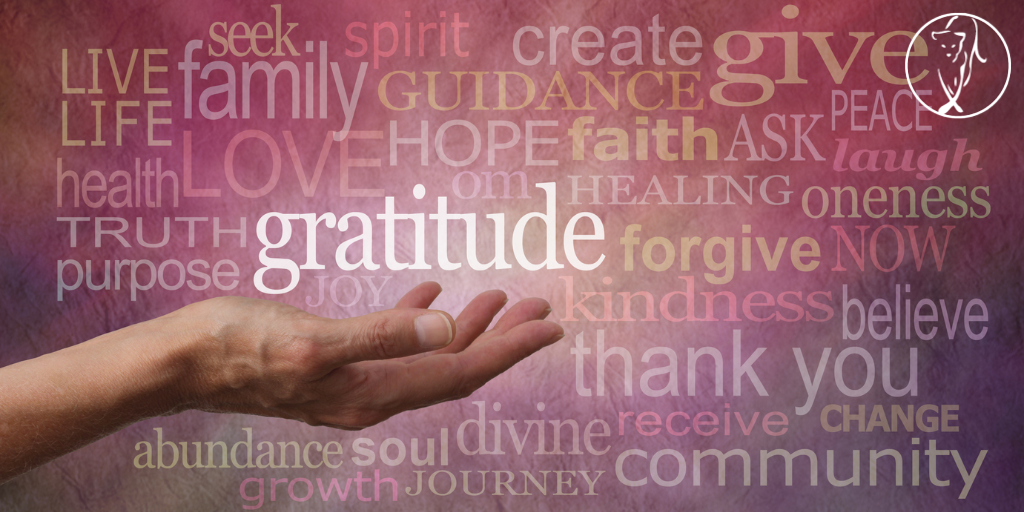
by Ashika Pillay
When I look back on this year, I also think back on what got me through it. Family and friends, love and belonging, the meaning of the work I do, giving and receiving. I hesitate to use the word resilience here. There was something softer than that. When I look back on this year, the practice that shifted me the most was gratitude. The practice of opening and truly deeply receiving what I already have.
I started a challenge of 21 days of Gratitude during Mental Health Awareness week on Linkedin and on my Facebook page. While it received some traction online, the biggest impact and the greatest number of likes was actually on the platform of “me”. I had invited a practice that was not just cognitive (and head-based) but embodied (and body-based). Feeling gratitude in my body rather than thinking about gratitude. Transforming the biochemistry of my body through allowing gratitude to infuse and permeate the cells of my body. Today, as I write this blog, I am on Day 54. Day 54?! Yes. You may have a few questions?
First, how have I kept this up, you may wonder? I’ve found a place, where it fits. Where writing daily at the end of the day, is natural for me, not contrived, and part of something I already do (a habit hack from James Clear’s Atomic Habits). There’s so much more I could write about just this alone. However, this maybe a topic for another blog.
How has it been meaningful for me, you may ask? Well, the first is that when I write my gratitude list, I write, and recall that moment in my body. Neuro-scientifically speaking, what this does, is it invites the moment back, as well as all the biochemicals that happened in that moment. So, for example when I recall the beautiful sunrise over the garden, the grass still misted, and the silence palpable, it basically gives me a second shot at appreciating that beautiful scene.
The second way it’s shifted me, is that now, as I go along my day, I’m conscious of things that I am grateful for, in the moment. So rather than it being something I recall at the end of the day, I am slowly becoming grateful in the moment. This definitely is taking more time. However, I can feel that I am almost slowing down, in a way, at points in my day, to do what Rick Hanson, author, psychologist and Buddhist teacher calls “wiring the good”. Because our brains are teflon for the positive (meaning it runs off us) and velcro for the negative (i.e., it’s much stickier), rewiring our brains for happiness and gratitude is really a conscious activity. We can experience this by simply sitting with something positive allowing it to soak in, bathing our bodies with those feel good hormones for as little as 20 seconds. I have found some of those little moments creep in. A smile, and a deep breath of gratitude can emerge from finding that parking spot! This shifts my mind, my mood and of course my body and my relationships.
Third, and definitely not last, I have found the beauty in the simple. I’m noticing things more. My awareness is shifting to sometimes becoming aware in how miraculous it is that I could be doing certain things. And, when things don’t go my way, I am practicing what I read through author Ryan Holiday, a mantra of three simple words. Yes, Thank You! When I don’t get what I was wishing for or wanting. Yes, thank you! Now I can try something else. Perhaps this is invoking the practice of surrendering. Not sure as yet.
So, friends, if you’ve read this far, I guess you can gauge that this has been a deeply meaningful practice for me. My invitation to you, as you leave 2021 behind, as you enter the threshold of 2022, as you take time to pause and reflect on this year, look at how you can integrate this transformative practice into your lives. Give yourself the gift that keeps on giving. I leave you with these beautiful words of Melodie Beattie, which speak for themselves.